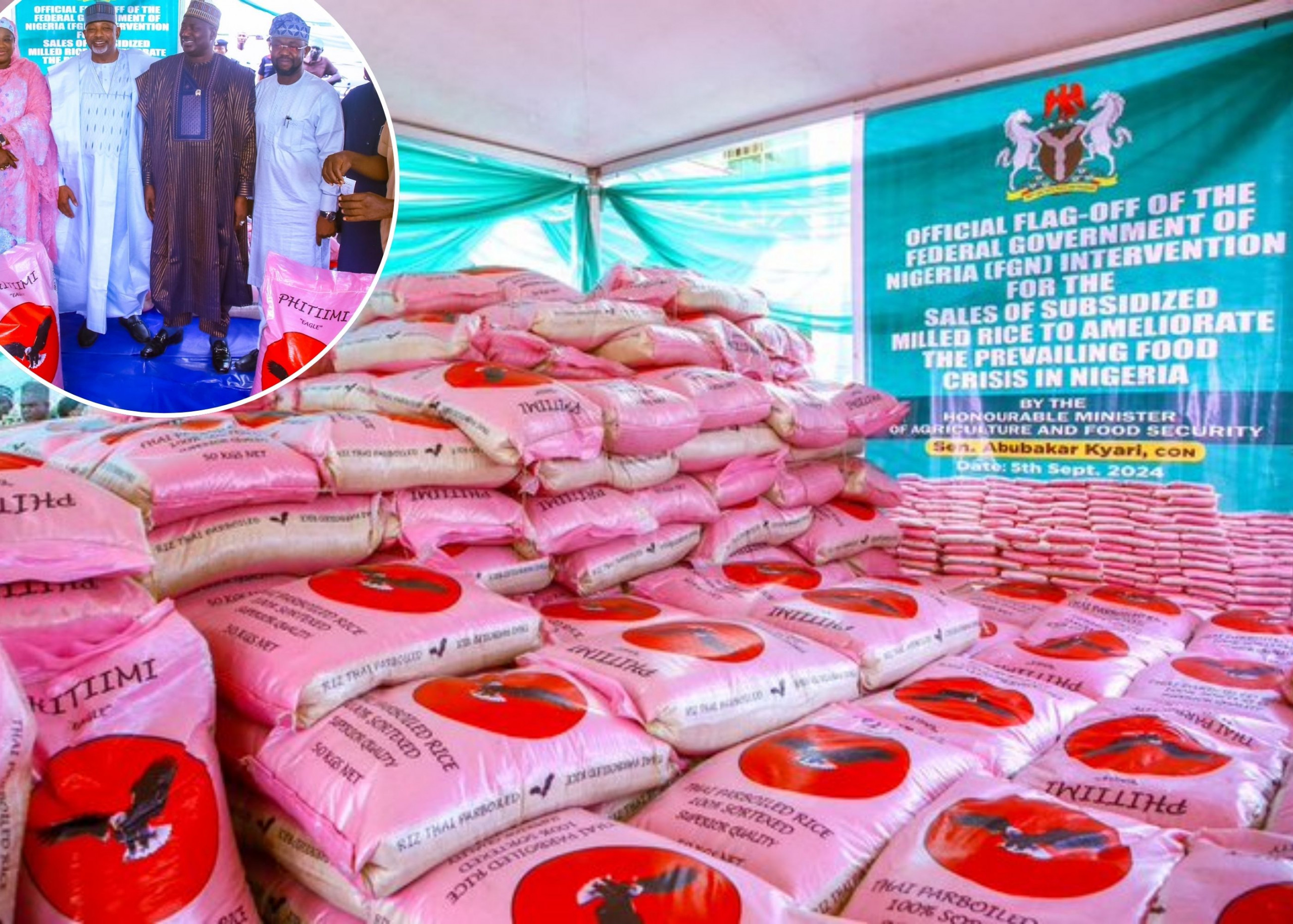News in Brief:
– The federal government of Nigeria has launched a subsidised rice sales program to alleviate the food crisis.
– This initiative aims to provide 30,000 metric tonnes of milled rice at a reduced rate of ₦40,000 per 50kg bag.
Nigeria’s Federal Government has launched the sale of 30,000 metric tonnes (MT) of milled rice at a subsidised rate of ₦40,000 per 50kg bag to alleviate the food crisis in Nigeria.
The Minister of Agriculture and Food Security, Senator Abubakar Kyari, announced this during the launch event in Abuja. He stated that the initiative was in response to the President’s directive to ensure that Nigerians do not go hungry.
Kyari also attributed the rise in food prices to factors like the COVID-19 pandemic, the Russia-Ukraine war, and climate change. He emphasised that the government is aware of the challenges associated with selling rice at a subsidised rate and has implemented measures to ensure transparency and efficiency.
Also, according to the Director of the Strategic and Grains Reserve Department, Engr. Haruna Suleiman, civil servants can access the rice using their Payroll and Personnel Information System (IPPIS) and National Identification Number (NIN), while other Nigerians can use their NIN only.
The launch event was attended by representatives from various government agencies, including the Nigeria Customs Service (NCS), Independent Corrupt Practices Commission (ICPC), and Economic and Financial Crimes Commission (EFCC).
Background and challenges of previous rice initiatives in Nigeria
Nigeria has a long history of rice initiatives aimed at reducing dependence on imports and ensuring food security. These previous attempts, however, have often been fraught with challenges.
One significant hurdle has been corruption and mismanagement. In the past, subsidised rice programs have been plagued by issues such as diverting food to the black market, hoarding, and multiple claims by beneficiaries. These practices have undermined the effectiveness of the initiatives and led to a loss of public trust.
Another challenge has been inadequate distribution networks. The lack of efficient infrastructure and logistics has hindered the timely delivery of rice to targeted beneficiaries, especially in rural areas. This has resulted in shortages and discontent among the population.
Furthermore, political interference has sometimes affected the implementation of rice initiatives. Changes in government policies, budget allocations, and priorities have disrupted the continuity of programs and hindered their success.
These factors have contributed to the mixed outcomes of previous rice initiatives in Nigeria. The current government’s efforts will need to address these challenges to ensure the success of the subsidised rice program and achieve its goals of food security and affordability.



